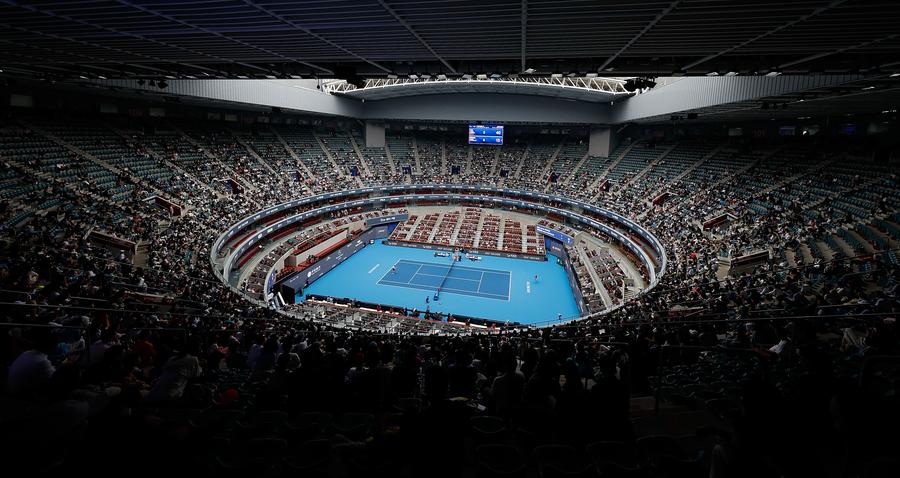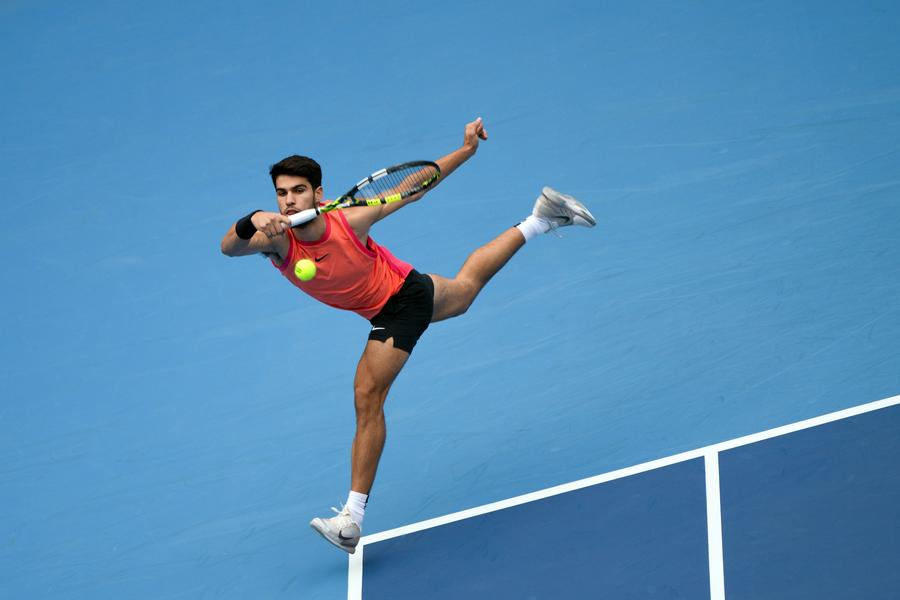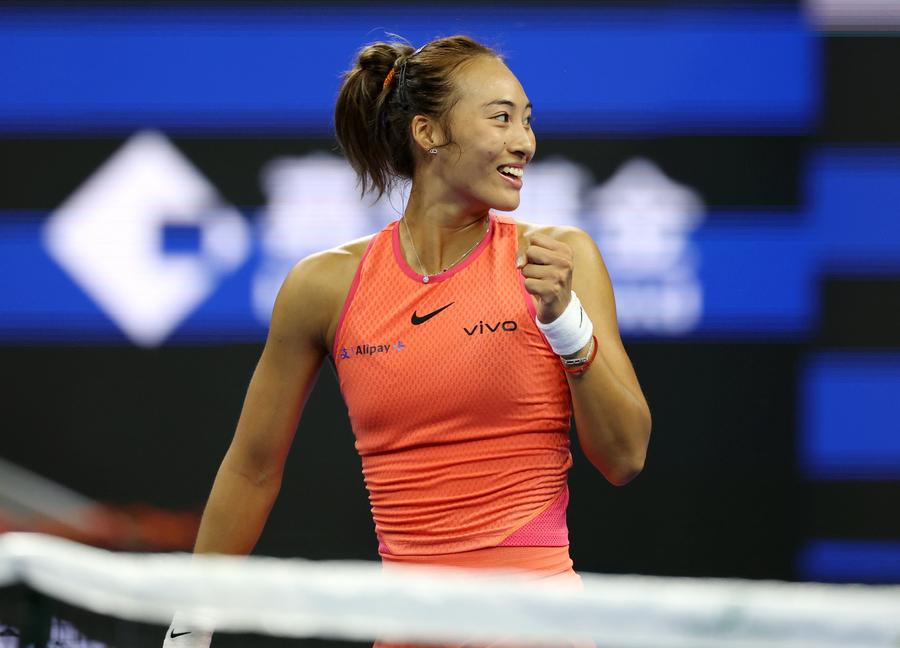
The China Open attracted a record single-day attendance of over 18,000 audiences on Saturday through expanded event scale, upgraded facilities, and innovative cultural activities. Behind it was the growing popularity of tennis in China, fueled by the excellent performances of Chinese athletes.
by Sportswriters Li Bowen, Li Chunyu and Jiao Ziqi
BEIJING, Sept. 29 (Xinhua) -- As the National Day holiday approaches, a wave of tennis enthusiasm surges with the kick-off of the 2024 China Open. Recognized as one of Asia's premier and most influential tennis events, the tournament has drawn increasing crowds to Beijing, establishing itself as a vibrant symbol of sports in the region through expanded event scale, upgraded facilities, and innovative cultural activities.
This year, the women's singles draw expanded to 96 players, featuring top stars from around the globe. Notably, the participation of Chinese players reached a record high, led by Zheng Qinwen, the Olympic gold medalist, alongside 13 other Chinese competitors. In men's singles, Shang Juncheng and Zhang Zhizhen entered the main draw directly, while young talents Buyunchaokete and Zhou Yi received wild cards.
According to the event organizers, Saturday saw approximately 39,000 attendees at the venue, with a total of 108,000 since the tournament began. The Diamond Court welcomed over 18,000 fans throughout the day, achieving a remarkable 95 percent occupancy rate, setting a record for single-day attendance at the China Open.

From its inception at the Guangcai Sports Center to its current location at the National Tennis Center, the facilities have continuously improved. The introduction of advanced technologies, including the "FlyingKitty" cable camera system and Hawk-Eye, has significantly enhanced the spectator experience. Comprehensive upgrading in player and audience services, such as expanded player zones and new outdoor warm-up areas, have also been implemented, ensuring a comfortable environment for all.
The commercial value and brand impact of the China Open are also on the rise. China Open tournament director Zhang Junhui noted that this year's sponsors has fully reached capacity, showcasing a strong lineup.
"The success we've achieved is a result of 20 years of development and the growing popularity of tennis in China, fueled by the excellent performances of our athletes," Zhang said. "While this isn't the first time we've reached full sponsorship, the enthusiasm this year is palpable."
In recent years, the emergence of Chinese players in Grand Slam events has become the norm, with Zheng Qinwen becoming the first Asian athlete to win Olympic gold in women's singles. The men's side is also rapidly rising, with Shang Juncheng clinching his first ATP title at Chengdu Open earlier this month.
"I think we are seeing the momentum take off now for these Chinese players as they inspire other younger players with the confidence to know they too can compete and win at the top levels of the sport. This is a real tipping point for the sport of tennis in China and I can't wait to see how well the Chinese players do at the China Open and Rolex Shanghai Masters," said Alison Lee, ATP executive vice president for international region.

China's tennis landscape is flourishing with a new generation of players and numerous high-caliber events like the China Open and ATP Shanghai Masters. Deputy director of Beijing Municipal Bureau of Sports Chen Jie emphasized the excitement generated by local talents, enhancing public interest in tennis.
Each year, players enjoy exploring Beijing's iconic landmarks and experiencing traditional Chinese culture. This year's player reception was held at the historic Prince Gong's Mansion, featuring cultural activities that immerse athletes in Chinese aesthetics.
Star players including Naomi Osaka and Coco Gauff visited the Great Wall, while others explored the Forbidden City in traditional attire, celebrating China's rich heritage. Aryna Sabalenka, a frequent visitor, expressed her affection for the country, fondly recalling her experiences.
Moreover, the newly designed player corridor at Diamond Court celebrates past champions and Beijing landmarks, inspired by Grand Slam designs, ensuring a global audience views these tributes during the event.
Bai Xilin, vice president and secretary general of the Chinese Tennis Association, remarked that the China Open serves as a platform for international cultural exchanges, illustrating China's achievements in sports and culture through its local events. ■